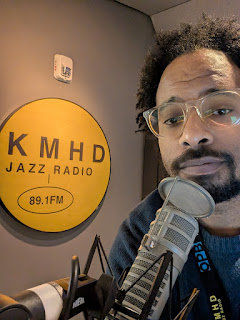The Environmental Dream Reborn
The Environmental Dream Reborn
Anthony Harris
Opinions Editor
anthonydeanharris@gmail.com
Over a weekend associated with the loss of a man who had a dream for humanity, a similar group started a new dream.
African-American environmentalist and founder of the Green for All Organization Van Jones headed the Dream Reborn Conference in
A group of over 90 students from various
Van Jones has been dedicated to the new notion of environmental racism, the spreading of environmental values and activism to the communities of people of color.
“Are we going to create a green economy that’s whites only?” Jones asked the crowd at the conference’s opening plenary. Jones has fought for years to ensure a new economy is formed at all levels based on “green” jobs.
Green jobs are jobs that are environmentally friendly, usually in nonpolluting industries. These are opposed to “green-collared jobs,” jobs that require few skill sets in new aspects of the environmental sphere focused on community building and upward mobility. Green-collared jobs include refitting cars to run on alternative fuels and installing solar panels to houses.
Jones’s ideas are largely based on the ideas conceived by
Bullard recognizes many people of color are on socioeconomic levels and recognizes the challenge in conveying his message, but he also recognizes the values inherent in environmental policies.
“It costs to eat healthy, but it costs more in the hospitals,” Bullard said.
The immense task of spreading environmental justice is long range. “We need marathon runners who will be in this for the long haul… that’s why we need young people who will come to this and take this over… to the next generation,” Bullard added.
Hence the grounding for the Dream Reborn conference: focus toward spreading environmental ideas to young, multiracial people so they may spread these messages to their respective communities.
This conference is a great start toward enlightening young people, Blacks especially, on environmental issues but certain aspects of the conference were flawed.
Many were discouraged by the long general sessions. The enthusiasm of the various speakers was resounding, but also difficult to digest in three hour, continuous lectures. As time wore on, a small few of the students who traveled from various
Various panelists had energy and vibrancy about their respective issues. Darrly Malek-Wiley of the Holy Cross Neighborhood Association of New Orleans spoke with pain and exasperation of the lack of environmental regulation which caused so much damage after Hurricane Katrina struck in 2005 and in the process of rebuilding
“Local people can fight for environmental justice with knowledge and organization.” Malek-Wiley informed the crowd as he spoke on community activism.
Concerned about various issues affecting the Black community like obesity, asthma, and hazardous construction, the conference addressed these issues while realizing the rift that environmentalists must cross when dealing with people of color. “Political Correctness has hurt this movement because people are afraid to attack the root of the issues. Racial tension exists and when there is no space allowed for all to have dialogue on the issues because there feared as being racist then that creates more distance. There is a way to have tact to address the issues but sugar coating is dangerous,” senior and Students Endeavoring for Enlightened Environmental Decisions (S.E.E.E.D.) coordinator Richard Merritt stated.
If the focus of the conference is gathering perspective and to stress the bourgeoning need for people of color to represent themselves when it comes to environmental issues, Van Jones, senior Morehouse students and organization coordinators Tony C. Anderson, Richard Merritt, Marcus Penny, and all others in attendance are certainly striving toward a better understanding of environmental issues in low-income communities.
“In order for us to make the program to lower income families, we’ve had to stress how it is relatable, but in it being relatable, we have to tie it to issues that are important. [As a logistics coordinator], what drives me is my ability to expose the issues of climate change, environmental justice, and a green economy.” Merritt said. “Right now, with how the Black vote is sought after, we can raise more issues. Right now, Blacks are at the table, but we don’t have the same plate.”
Marcus Penny said that because the environmental movement is dominated by white privilege, it is easy for non-whites to become tokenized.
“Conferences like this help us to realize that the true measure of your work is in the results, not the promises,” Penny said.
Yet, there is still work to be done. In order to provoke change in the Black community, the problem does not just end with awareness. Negroes must see converting to a green lifestyle as more economically viable and not simply seen as a white thing.
“You have to focus on things close to home… jobs, the asthma rates of people who live close to power plants. You really have to just make it hit close to home.” replied junior Julius Pryor IV
“It has to have a start; there has to be some sort of progress. Every marathon has its first step. But ultimately, winnable, achievable victories are possible. We can become green! Sí, se puede! Yes, we can!”
As a conference, it has largely served its purpose. All those in attendance have been inspired to change the world in their respective communities. Yet, the question of how far their activism will go and whether the Black community will accept new changes to help the environment is yet to be seen. In the end, one can say organizations like Green for All and Anderson, Penny, Merritt’s AUC organization, S.E.E.E.D., will continue to strive to help the world.
S.E.E.E.D. meets every Thursday at 7p.m. in Wheeler Hall Rm. 306. It will have its “We Got That Green…” week starting April 20. For more details, find the S.E.E.E.D. group on Facebook.



Comments